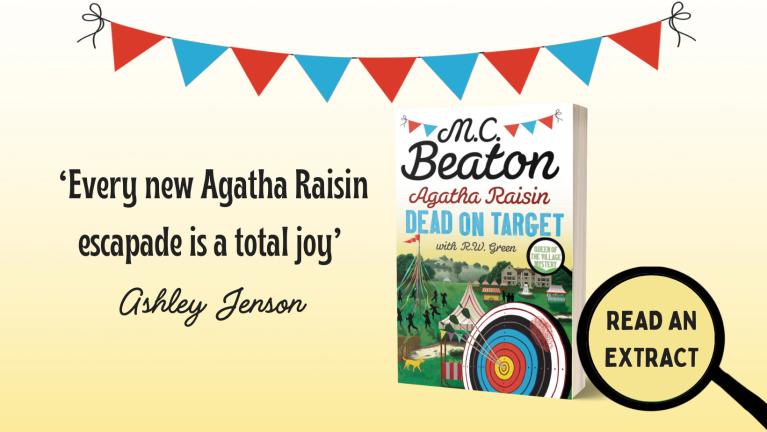Read an extract of In the Crypt with a Candlestick!

Chapter 1
The Todes of Tode Hall
Lady Tode stood by the Great North Door of her important house, a vision of slimness and grief as she watched her husband take leave of the building for the last time. It was raining, as it always was, and Sir Ecgbert was dead. At the far end of the park, its huge, high dome obscured by mist, the Tode family mausoleum stood waiting, as it always had, to swallow his grim remains.
The mausoleum had been swallowing dead Sir Ecgberts for ten generations already, and had been waiting to swallow this one since the day of his birth ninety-three years ago. Which fact seemed, at his extended deathbed, to be a source of great comfort to him. Long after he could no longer recognise his wife or go to the lavatory unaided, he remained coherent and agitated about his final resting place. Was it ready for him? Had everyone understood which shelf he wanted? He didn’t want to be anywhere near his Uncle Gilbert (a homosexualist) nor – God forbid – anywhere near ‘the American’. Had they mowed the path across the park for the hearse? Would they remember to remove the cows from the field along the route? He didn’t want the hearse getting butted by the bullocks . . . Over and again, Lady Tode had to promise him that all was in order. Yes, my Eggie-Peg, she had to say. We know which shelf you want! Everything is ready! You mustn’t worry! But he could never hear it enough. It was as if the mausoleum’s mere presence, still standing where his ancestors had plopped it all those years ago, was proof that he had done his bit. The Tode mausoleum still belonged to the Todes. He could rest in peace.
It was in lousy shape, mind you. Non family members had to wear hard hats and sign waiver forms before they were allowed anywhere near it. There were cracks in the walls and missing tiles on the roof, and dry rot, and damp rot, and, in one of the four underground chambers (each with twenty or more shelves), a disgusting infestation of termites. There were stones that had come loose, and crypt fronts that had come off, and everywhere, signs warning tourists to Keep Out; not to mention the addition, in 1995, of a Missouri millionaire, ‘the American’, who’d paid the Tode Hall estate £35,000 for permission to rest his plebeian bones in an empty crypt beside Sir Ecgbert’s great, great, great, great grandfather.
But no matter what state it was in, or whose bones rested inside, there was no denying the Tode mausoleum was something to behold. It was vast. It was preposterous. A building of such staggering importance and beauty that students of architecture came to admire it from all around the world. The name Tode meant ‘death’ in German. (As the late Sir Ecgbert often liked to remind his guests: it was his single joke. ‘Welcome to Death Hall,’ he would say.) Perhaps this is why the Todes of Tode Hall invested so much in the family tomb. Maybe they’d always had an unhealthy preoccupation with the end.
In any case, Lady Tode could hardly bring herself to look at the wretched thing. She had hated it from the day she mistakenly became Sir Ecgbert’s bride, fifty-four years ago, when, stepping out of the private chapel from which Sir Ecgbert’s coffin was just now being removed, she had happened to glance at the mausoleum, its magnificent dome looming through the mist and the rain – and realised that, unless she did something radical and very brave, which was unlikely, the bloody thing would be looming at her until the day it was her turn to be slipped onto one of its shelves.
All things being equal, that wouldn’t be for a while yet. Emma Tode was twenty-one years younger than the husband she was burying today. Still fit and fragrant and very much alive, and after fifty-four years of dutiful wifedom, longing to hand responsibility for the estate to the next generation, and spend more time at her lovely villa in Capri.
There were only three clouds on the horizon: Nicola, Ecgbert and Esmé, none of whom was prepared for the duties that lay ahead. It was too bad, because somebody had to do it. Lady Tode had served her time. She had waited long enough.
There was going to be an almighty row after the wake.






